- Contents
Kenya is currently experiencing severe flooding and above-average rainfall, which has resulted in significant loss of life, displacement of people, and damage to property. Since March 2024, over 200 people have lost their lives, and hundreds of thousands have been forced to flee their homes due to the catastrophic floods.
To assess the experiences, impacts, realities, and perceptions of the floods on the ground, GeoPoll conducted a nationwide survey between April 30th and May 1st, 2024, targeting 1,755 respondents.
Key Findings
- Impact: Over half (55%) of respondents reported experiencing flooding. Of those affected, 73% faced direct consequences. including lost work/school days (42%), property loss (27%), displacement (17%), injuries (5%), and even family member loss (5%).
- Aid Distribution: Only 30% of respondents received aid, primarily food and medical assistance. The most desired support included financial assistance (50%), food supplies (47%), and shelter(35%).
- Information Dissemination: While 44% felt well-informed about flood preparedness, 21% lacked information. Social media (43%) emerged as the primary source of flood warnings and safety measures, followed by TV.
- Government Responsibility: Opinions on flood management responsibility were divided, with 32% attributing it to the national government, 29% to county governments, and 17% advocating for individual responsibility. Consequently, 39% viewed the government’s response as ineffective.
- Mitigation Measures: The most desired mitigation strategies included improved drainage systems (79%), better disaster preparedness (55%), and robust early warning systems (53%).
—
Impact of the Floods
Approximately 55% of the respondents indicated that they have experienced flooding of varying severity.
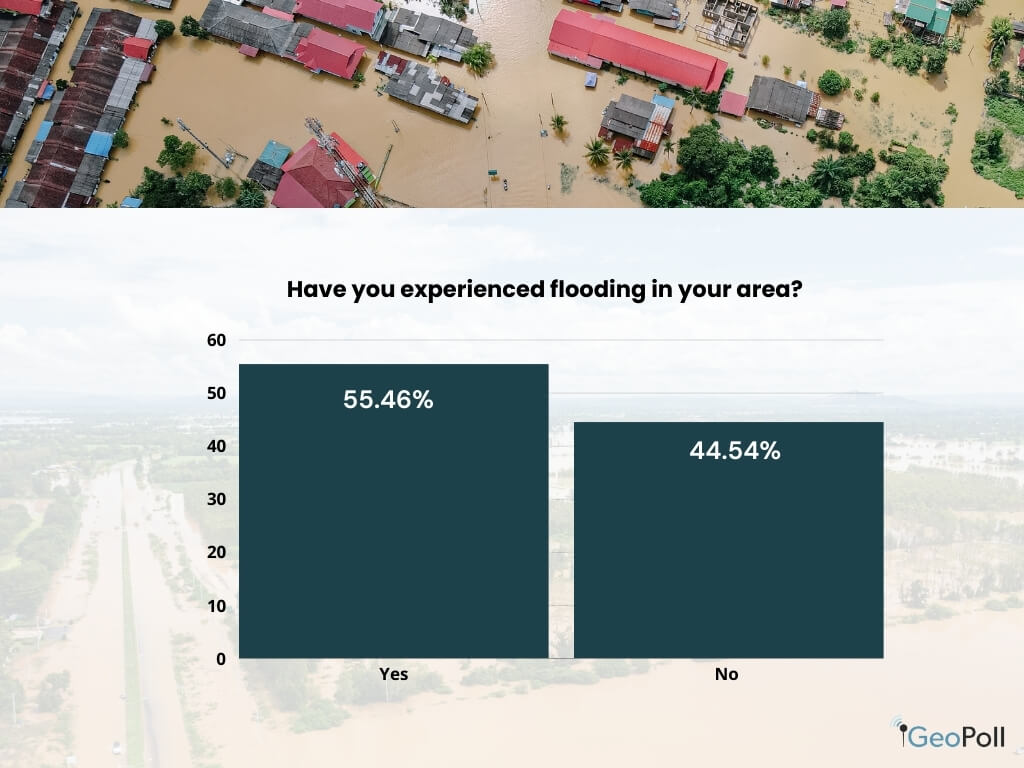
73%
Among those who reported experiencing the floods, 73% stated that they had been directly affected by them.
The impact of the floods has been far-reaching, with 42% of respondents unable to attend school or work. In response, the government moved the school opening day initially by a week and then indefinitely.
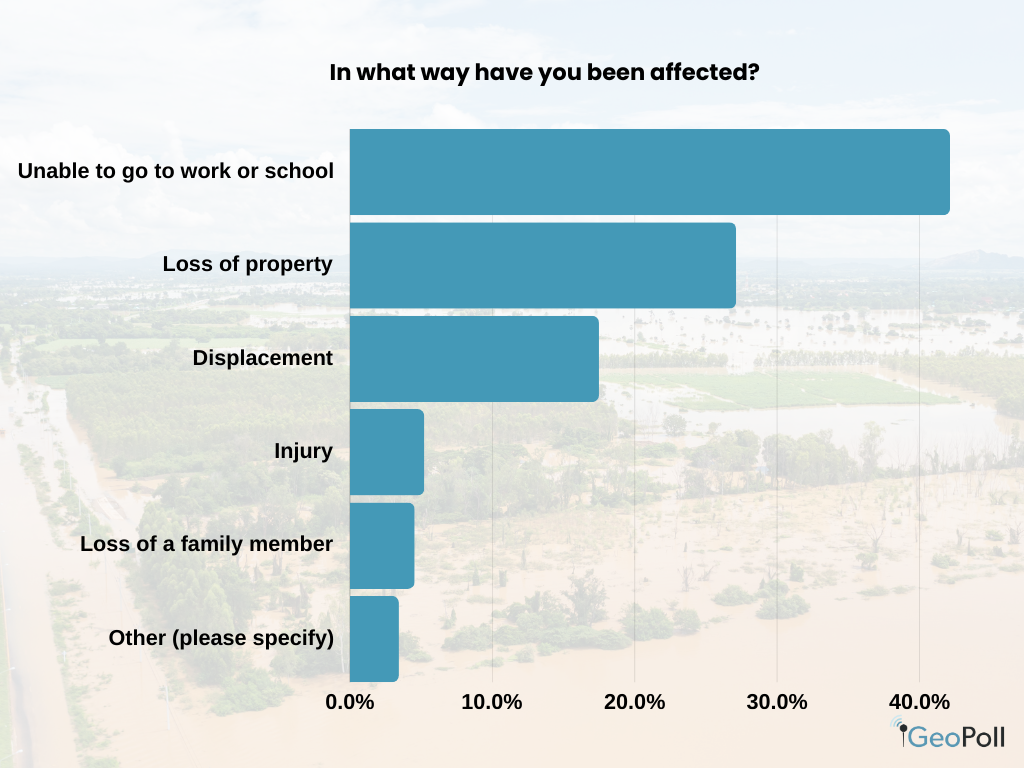
Additionally, 27% of respondents reported losing property, and 17% stated that they had been displaced from their homes. Tragically, 5% of respondents suffered injuries, and another 5% reported losing a family member in this crisis, which has claimed the lives of nearly 200 people.
Humanitarian Aid
When asked if they had received any humanitarian aid from the government or non-governmental organizations, 70% of respondents reported that they had not.
70% of those affected by the floods have not received any humanitarian aid
Among the 30% who had received aid, 45% said they had received food supplies, and 42% reported receiving medical assistance. Thirty percent had received some financial assistance while 29% had received shelter.
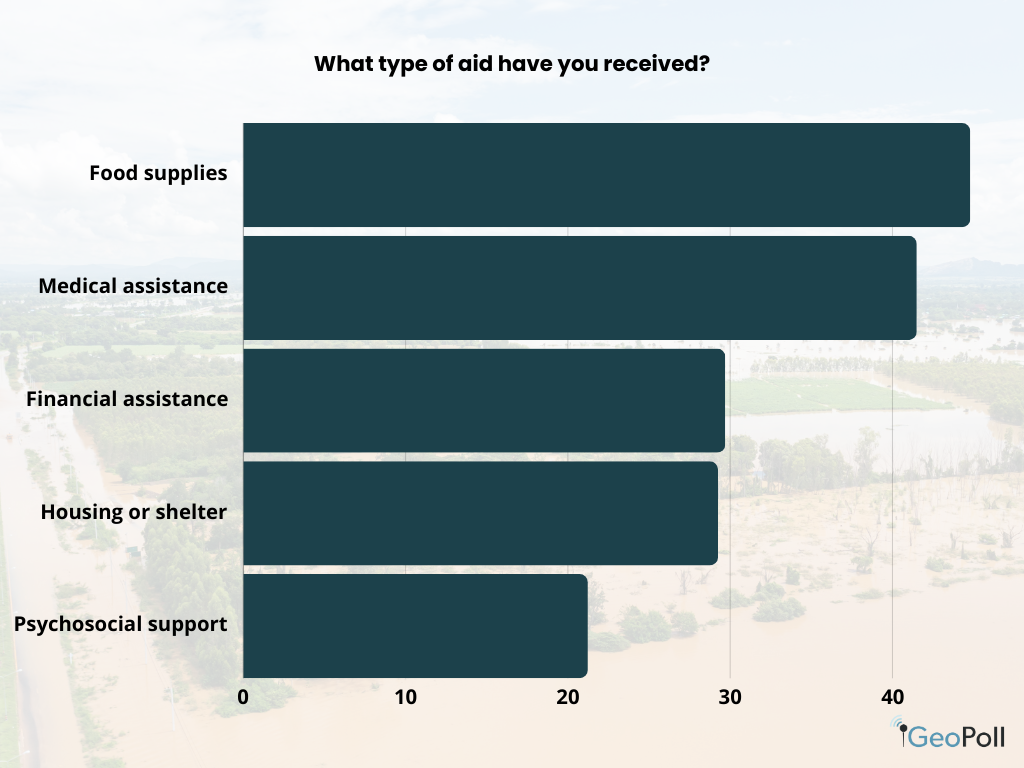
With livelihoods, property, and homes lost, it is no surprise that the most needed form of aid is financial assistance (50%), followed by food supplies (47%) and shelter (35%)
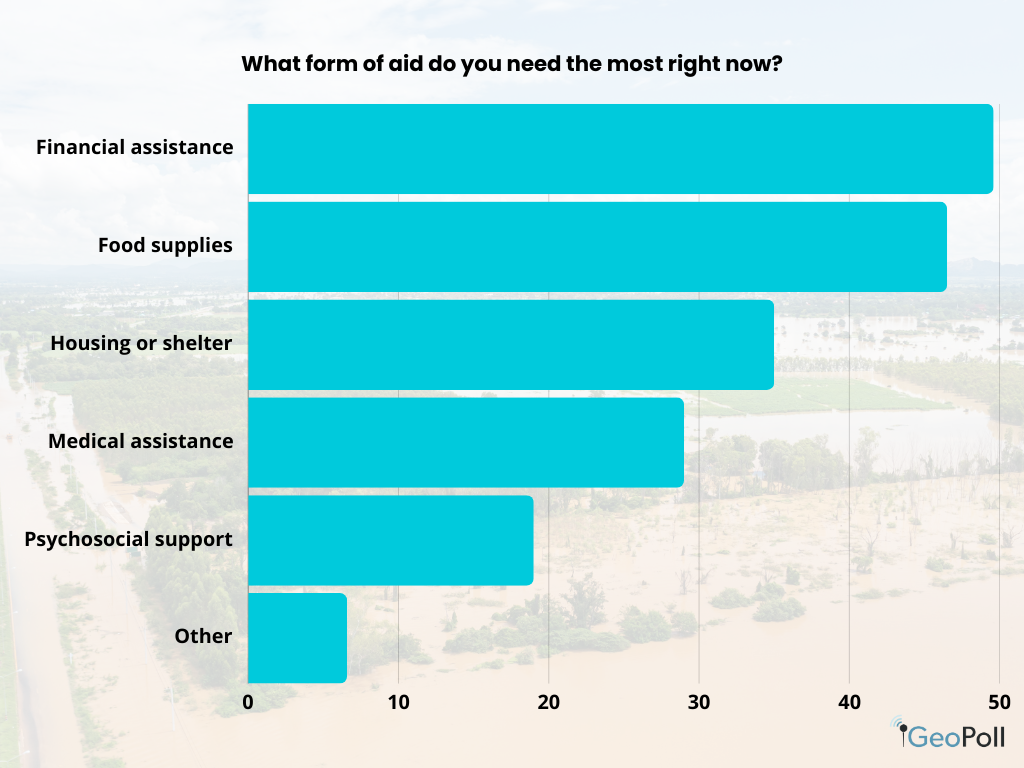
Information and Awareness
The survey found that 44% of respondents felt well-informed about the measures to take before, during, and after flooding. However, 21% reported being either not informed at all or not very well informed, highlighting the need for sensitization campaigns to better equip citizens with the necessary knowledge and skills to protect themselves.
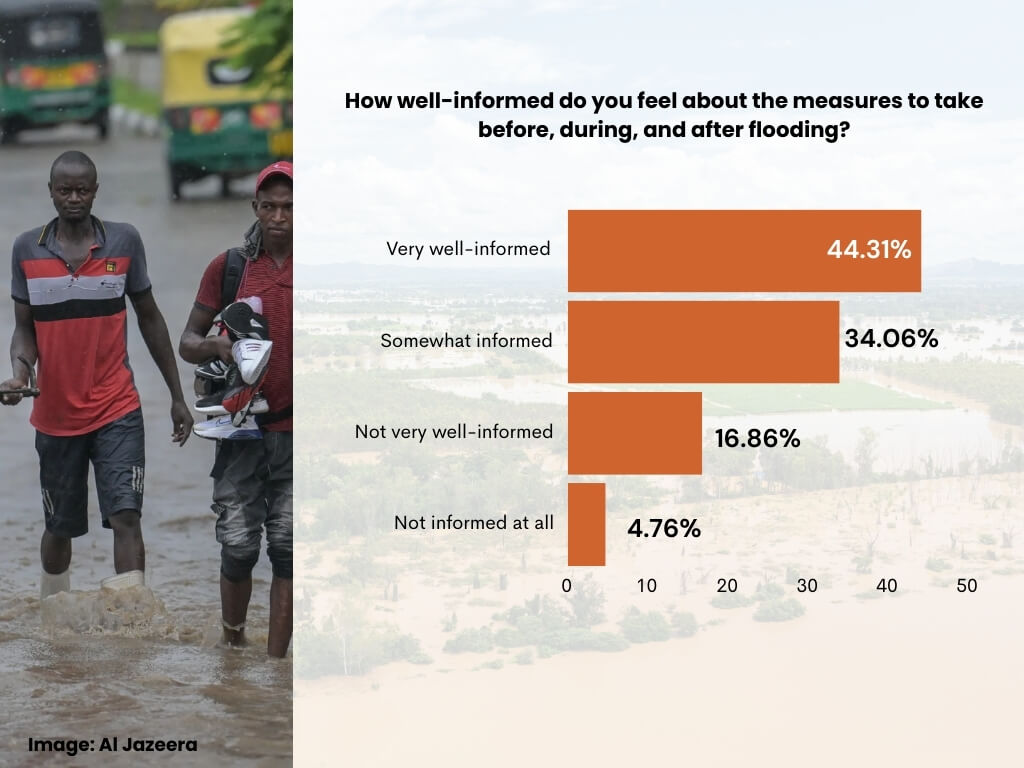
As for sources of information for flood warnings and safety measures, 43% of respondents are primarily relying on social media, 40% on television, and 14% on radio.
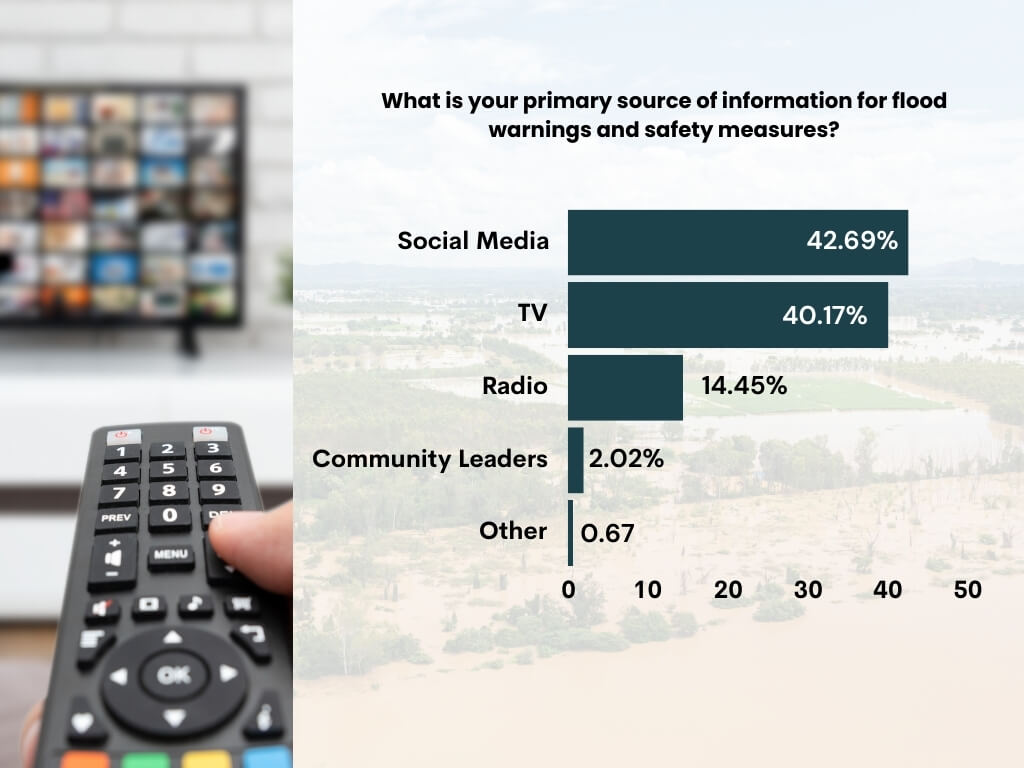
Concerns and Recovery
The Kenya Meteorological Department has warned that heavy rains are likely to persist at least throughout May. The survey found that a significant percentage of respondents expressed high levels of concern about the floods and prolonged rains, with a combined 71% stating that they were either very concerned or extremely concerned.
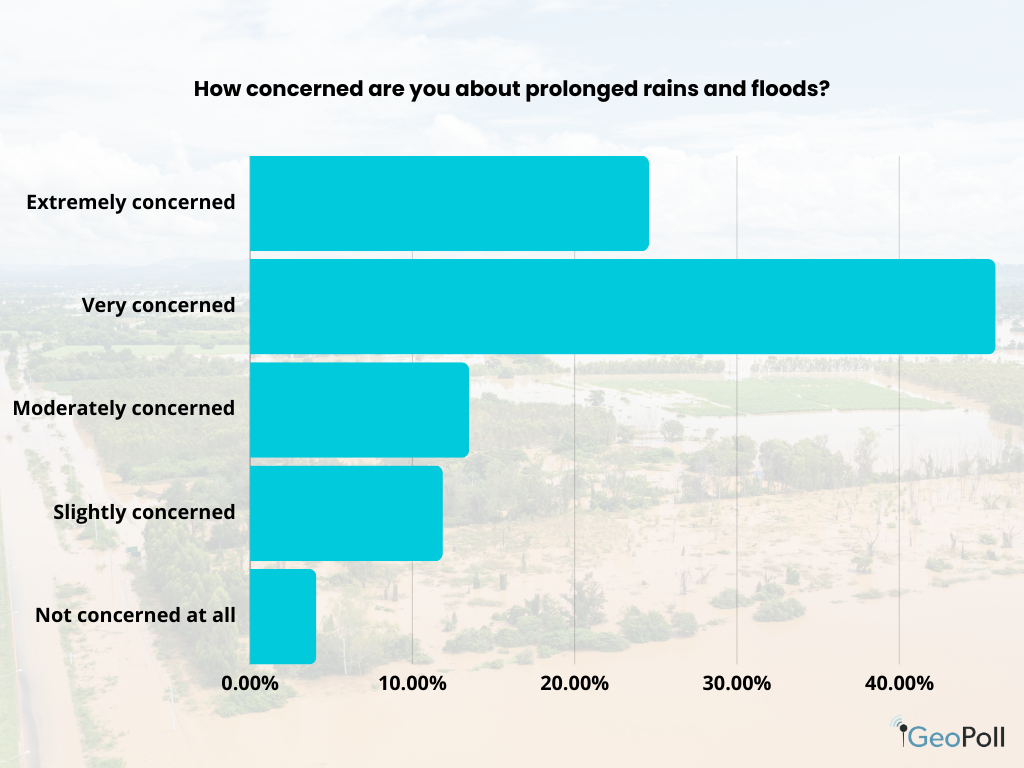
Respondents cited health issues (62%), loss of housing (59%), loss of life (58%), disruption of education (53%), and the destruction of infrastructure(52%) as their main concerns.
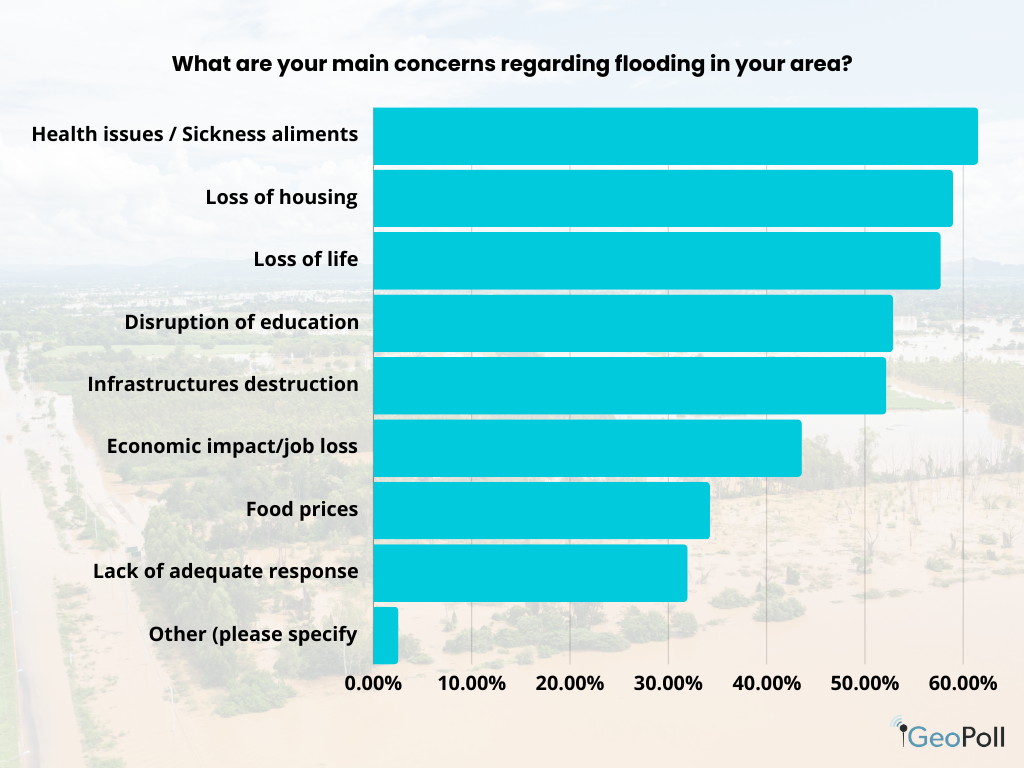
Despite the challenges, respondents are optimistic, with over half believing that once the crisis is over, their community should take less than half a year to recover. However, 16% believe it will take more than a year for their communities to get back on their feet.
Government Performance and Responsibility
When asked about the primary responsibility for flood management and prevention, 32% of respondents believed it lies with the national government, while 29% stated that it should be the responsibility of the county government.
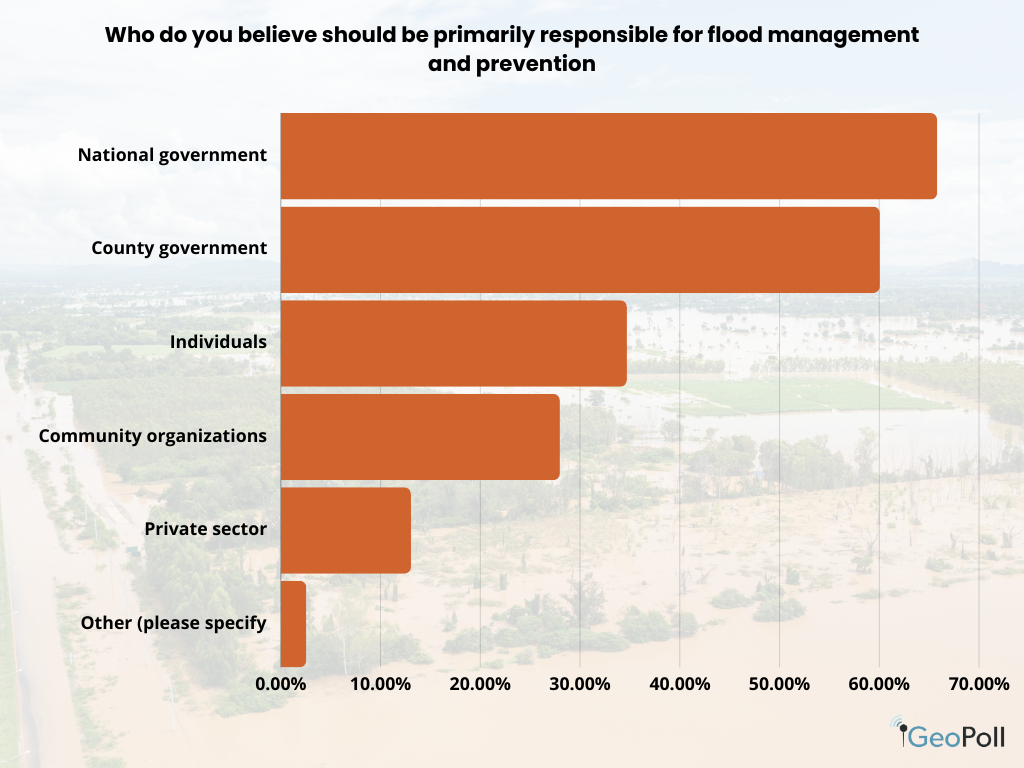
Meanwhile, 17% were of the view that individuals should take control of their own protection.
With the government cited as primarily responsible for flood management, we asked the respondents to assess the government’s response to the floods. The biggest percentage, 39%, of respondents said the government’s response to the floods was either ineffective or very ineffective. Thirty percent were neutral in their assessment of the government’s effectiveness.
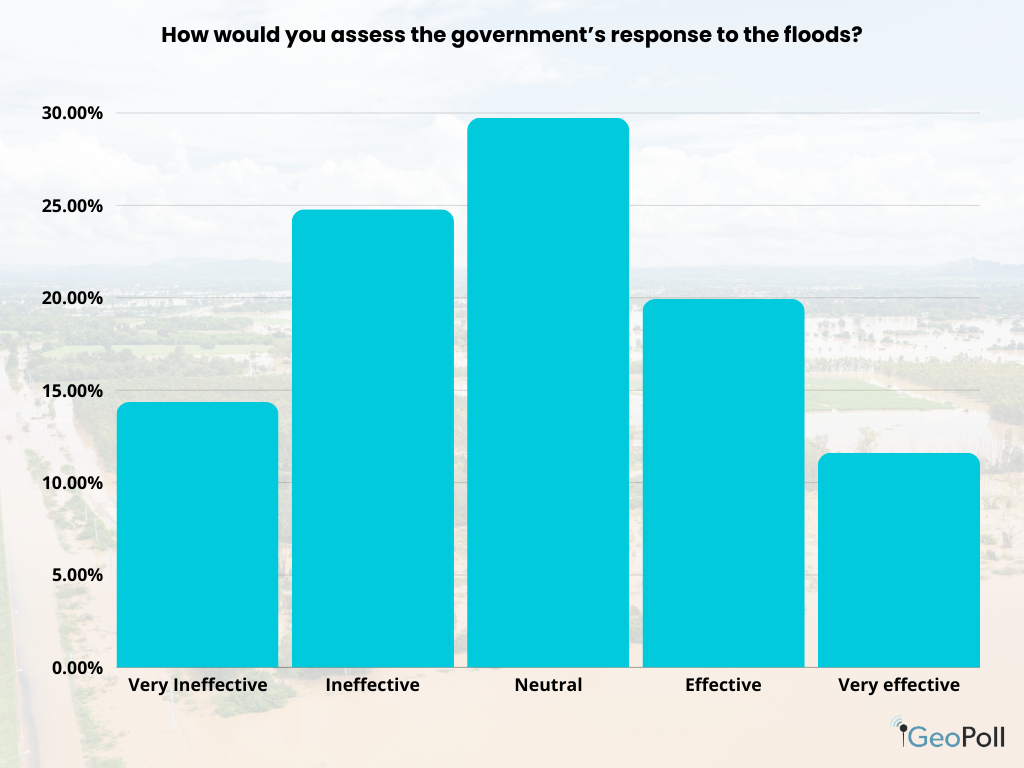
When asked about their recommendations for preventing flooding or mitigating impact, respondents highlighted the most important measures to be better drainage systems (79%), improved disaster preparedness (55%), and early warning systems (53%).

Conclusion
The ongoing floods in Kenya have had a devastating impact on the lives of its citizens, resulting in numerous casualties, displacement, property damage, and disruption of livelihoods. This survey conducted by GeoPoll provides valuable insights into the experiences, perceptions, and needs of the affected communities.
Generally, there is an urgent need for comprehensive and coordinated efforts from the government, humanitarian organizations, and individuals to address the immediate and long-term consequences of the floods. Effective disaster preparedness, early warning systems, and improved infrastructure are crucial to mitigating the impact of future flooding events.
There is also a need for raising awareness and providing education on flood safety measures to empower communities to better protect themselves. Addressing the concerns related to health, housing, loss of life, and disruption of education will be essential in supporting the recovery and resilience of the affected communities.
To learn more about the methodology, access the raw data, or conduct further research, please contact us.
